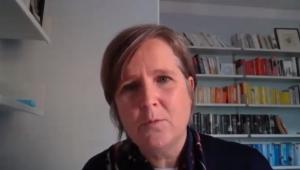It’s an admirable aspiration to make anything complex, simple. And financial payment systems are certainly no different. Where these are concerned, simplicity is efficient, user-friendly and tends to avoid frictional costs.
But simplicity is hard to achieve, and hard to maintain. That’s particularly the case in an organisation like the NHS, which is the largest employer in Europe, spread all over England and Wales and serving everybody who needs its help.
Right now, simplicity is hard to achieve because it requires clarity of purpose. Without this, as the recent report from NHS Providers and the Health Foundation Towards an effective NHS payment system: eight principles makes clear, we are left with diluted priorities and a chasm between what trusts need to deliver high-quality, sustainable care and what is available.
The NHS is in a moment of great flux, with unrelenting demand on the one hand and ongoing financial constraints on the other. The new approaches developing in response to this challenge need a payment system that goes with the grain of their efforts, while established providers need reform of a complex yet vital part of how the NHS delivers care.
Why, exactly, is that reform required?
Firstly, the current NHS payment system has its roots in the wholly different funding environment of the early 2000s, when funding was rising at almost 6% a year. With those days long gone, the government has tried to use the tariff to drive efficiency improvements, meaning that an averagely efficient provider can no longer make a surplus, or even break even.
Simply put, there is a gap between provider income and provider costs that is the result of increased demand going unfunded.
Secondly, the NHS payment system is now a complicated mosaic of different incentives and funding pots. The policy imperatives driving the creation of, for example, Commissioning for Quality and Innovation schemes may be admirable. But any such initiatives have an opportunity cost and add complexity. And what the future holds for the Sustainability and Transformation Fund is unclear. However, we might sensibly ask whether trust income through the tariff can continue to be cut to the bone when trusts drew down nearly £2.7bn of interim revenue support in 2016-17 – a third more than the previous financial year.
In producing Towards an effective NHS payment system: eight principles we spoke in detail with trust finance specialists, operational experts and clinicians to understand how the current design of the NHS payment system affects the care that patients receive.
The results were clear. In summary, respondents agreed that to deliver good care, providers need:
- clear purpose
- realistic expectations about impact
- national consistency with local flexibility
- appropriate, aligned incentives
- high quality data
- balance between complexity of design and ease of use
- independent oversight and support
- time to embed and evaluate systems
By themselves, these eight principles and the work underpinning them set out a coherent framework for the national bodies to examine how, why, and even whether they might use the NHS payment system in service of a particular policy goal.
Trusts told us, however, that context is king. Whatever approaches or principles we adopt need to be seen in their setting.
The NHS payment system needs to be understood as one lever in a very complex environment – an environment informed by the regulatory requirements placed on trusts, and the particularities of the relevant local health and care economy. Providers will, after all, only ever be one element of a care pathway. It is naive to imagine that solutions to health and care economy-wide challenges can be engineered while ignoring, for example, the reality of ongoing limitations in social care capacity, or the challenges faced in primary care recruitment and retention.
This mutual dependence between providers and the wider local health and care economy is one of the great complexities for the national health bodies. It partly explains, perhaps, why NHS England both sets the rules for the NHS payment system and is an actor with a financial stake in it, through its responsibility for the finances of CCGs. Fundamentally, though, it may remain difficult for trusts to regard the funding environment as fair when the key rule-setting body has such clear financial skin in the game.
That said, there is room for real optimism about what judicious reform of the payment system can achieve. Trusts told us, for example, that reform could support their ongoing collaboration and system redesign work with their partners in the local health and care economy.
An NHS payment system that works with providers not against them has every chance of building a secure footing for the new care models and the high quality, sustainable care they could deliver.



















